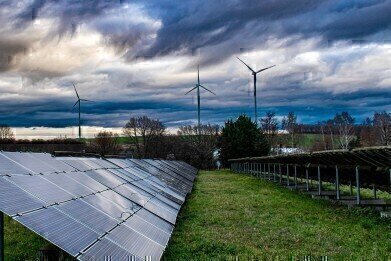Air Clean Up
What Is Decarbonisation?
Apr 07 2022
Unless you’ve been studiously avoiding the news for the last 10 years or so, you’ll likely have come across the term decarbonisation. While most people have a vague idea that it’s connected to climate change and global warming, they may not fully understand what it means in concrete terms. In this article, we’ll take a look at what decarbonisation means, why it’s important and how it can be achieved.
What is decarbonisation?
Decarbonisation refers to the process of reducing carbon dioxide (CO2) and other greenhouse gas emissions across a wide variety of industries. Although decarbonisation is an important consideration for a business operating in any sector, it’s especially important in the energy and transportation industries, since these are among the biggest emitters of CO2 and carbon equivalent.
Why is decarbonisation important?
It’s imperative that governments, corporations and individuals work together to reduce their carbon emissions as much as possible. That’s because the volume of emissions of greenhouse gases has skyrocketed in the last 200 years, thanks in large part to the Industrial Revolution and the widespread anthropogenic activity that has followed.
As well as polluting the air we breathe, these emissions can also have a far more serious effect in the long term: global warming. That’s because greenhouse gases are adept at trapping the heat emitted by the sun’s rays in our atmosphere, thus elevating the ambient temperature around the world. This, in turn, can raise oceanic temperatures and melt the polar ice caps, which causes sea levels to rise and endangers those living in coastal populations.
Meanwhile, the disruption to the natural order of things caused by increased concentrations of greenhouse gases can also contribute to climate change and extreme weather phenomena. In recognition of these dangers, heads of state from around the world met in Paris in December 2015 and agreed to limit global warming to an absolute maximum of 2°C. Decarbonisation is essential to achieving this goal.
How can decarbonisation be achieved?
The most logical route to decarbonisation is transitioning to cleaner sources of energy generation. For centuries, mankind has relied on the combustion of fossil fuels like coal, oil and gas to meet their power needs. Although extremely effective, these forms of energy production are responsible for significant greenhouse gas emissions which exacerbate the aforementioned problems.
As such, it makes sense to move away from fossil fuels towards less damaging sources of power, such as renewables like wind, wave, solar, biofuel and geothermal energy. Nuclear energy is another potential avenue of research, albeit one which is no stranger to controversy itself. Meanwhile, the transportation sector is slowly switching from traditional combustion engines to electric vehicles (EVs), hybrids and other forms of sustainable transport.
Finally, the scientific community has been searching for ways to mitigate the harmful emissions produced by fossil fuels and other existing sources of power upon which we currently rely. Carbon capture and storage (CCS) is one of the most promising technologies in this respect and works to reduce emissions through the use of sophisticated gas analysis and sequestration, removing the damaging gases from the flue at the point of emission.
Events
May 05 2024 Seville, Spain
May 13 2024 Munich, Germany
May 23 2024 Beijing, China
May 23 2024 Beijing, China
Jun 10 2024 Algiers, Algeria














